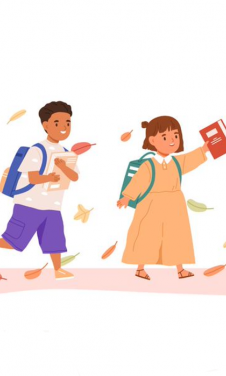
All about rules!
Description
Rules are an important part of society. From a young age, children are exposed to a series of rules on a daily basis. However, children and adults alike often question where these rules come from and whether they are fair.
- Who makes the rules?
- What is our role in determining the rules and laws that govern our daily activities?
- Are they fair?
- Are all rules part of the law?
This activity raises children’s awareness of the law through a philosophy for children approach. In the optional concluding activity, children work together to determine classroom rules. If they have a say in making the rules, they’ll be more willing to follow them and understand that the rules are applied democratically.
Educational objectives
- To raise students’ awareness of the law in their lives
- To help students understand where rules come from
- To help students realize that restrictions and responsibilities are subject to rights and freedoms
- To establish classroom rules in a democratic manner, which helps ensure students follow them
- To learn to speak in front of a group
Subjects and subject-specific competencies
Culture and Citizenship in Québec - Elementary Cycle One
Cultural realities: Relationships between people - Relationships between individuals.
Compulsory content, and related topics and examples: Roles and responsibilities in the family and at school.
- Competency in Cycle One: Explores cultural realities:
- Engages in dialogue:
- Puts into place conditions conducive to interaction.
- Supports own ideas.
- Inquires about the ideas of others.
- Engages in dialogue:
Duration
Approximately five periods of 45 to 60 minutes each
| This teaching guide may still refer to the Ethics and Religious Culture program. However, the topics covered remain relevant for the new Culture and Citizenship in Québec program. We are currently updating the content. You will be notified as soon as the new teaching guide is available online. |



